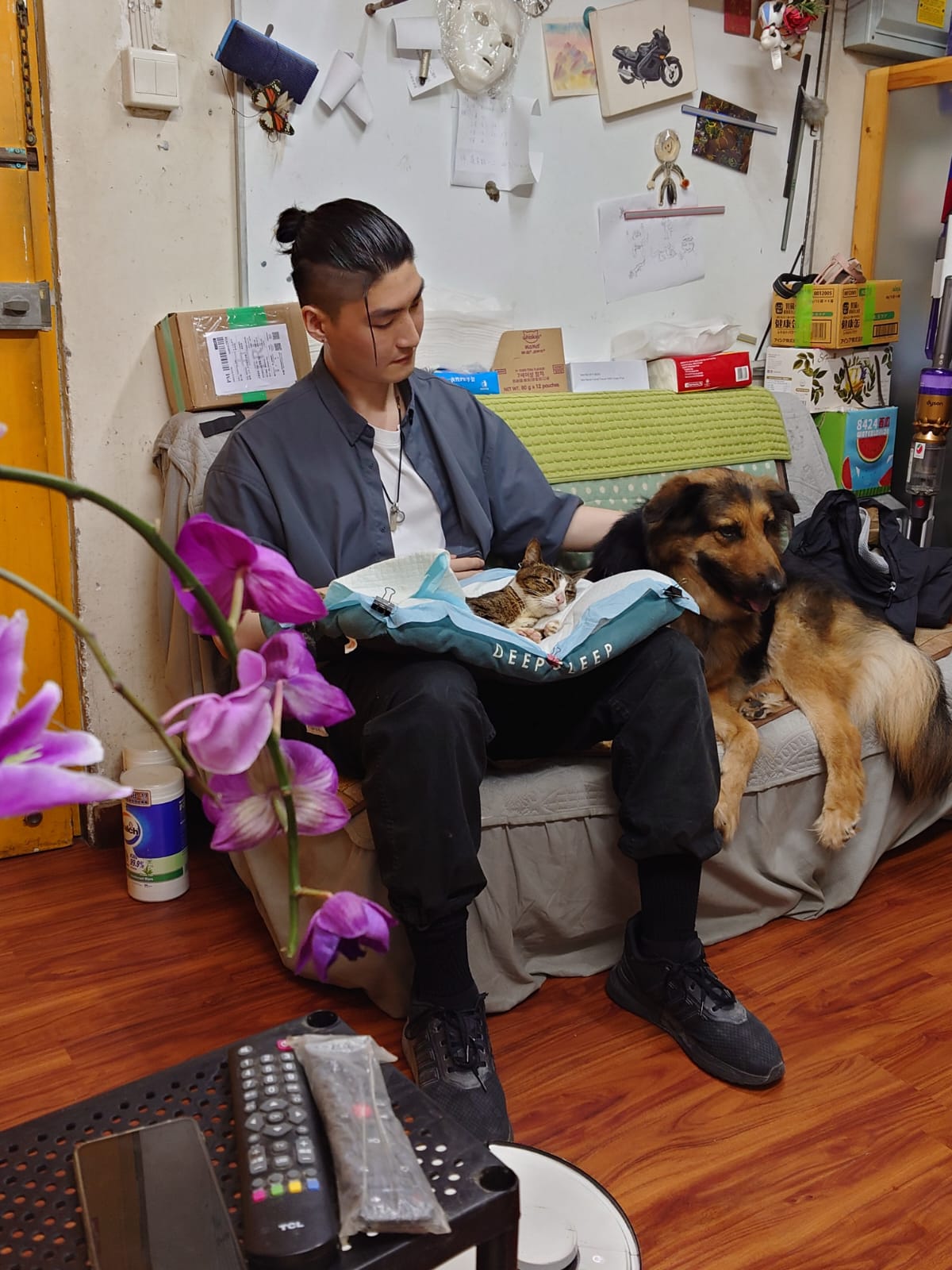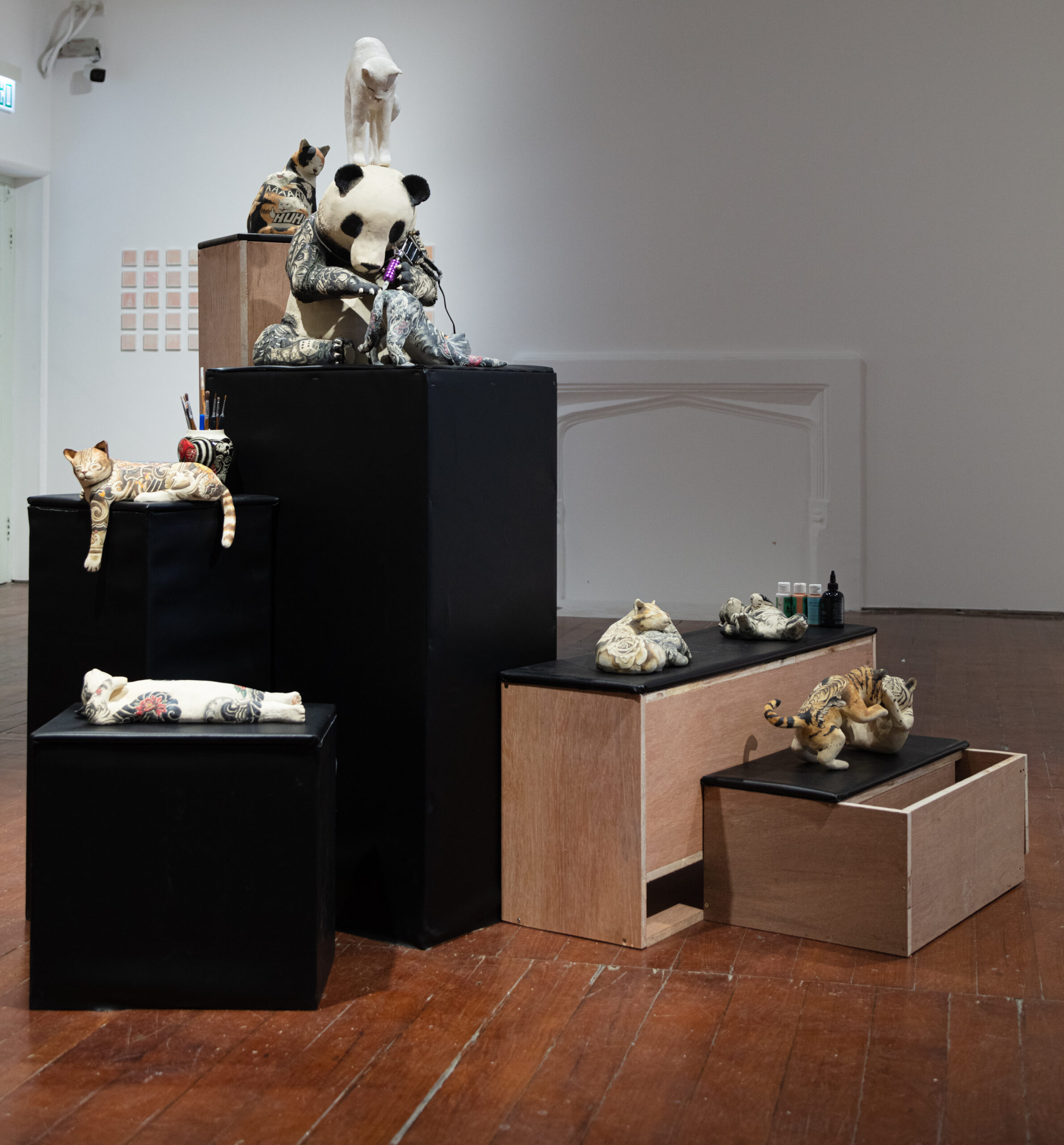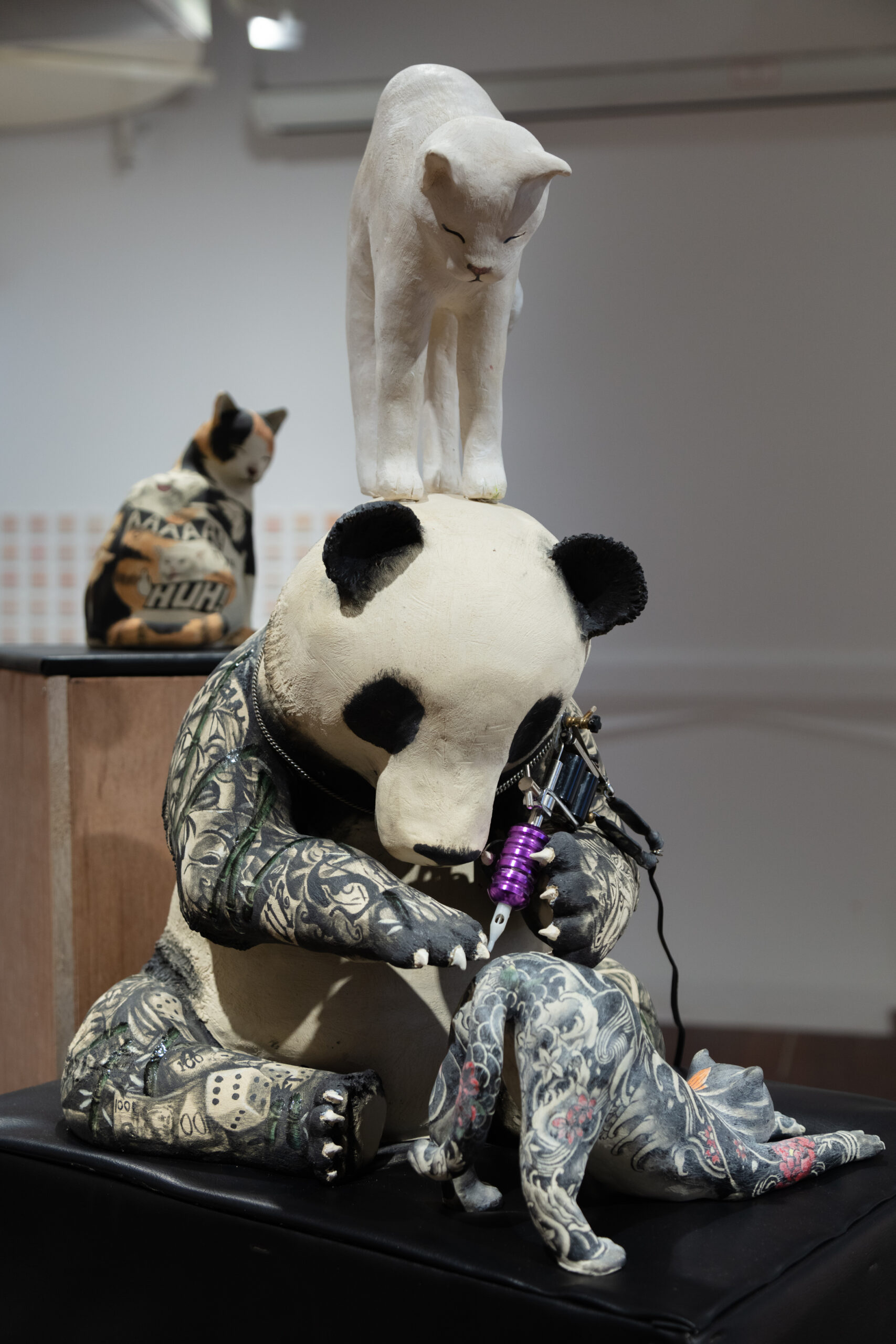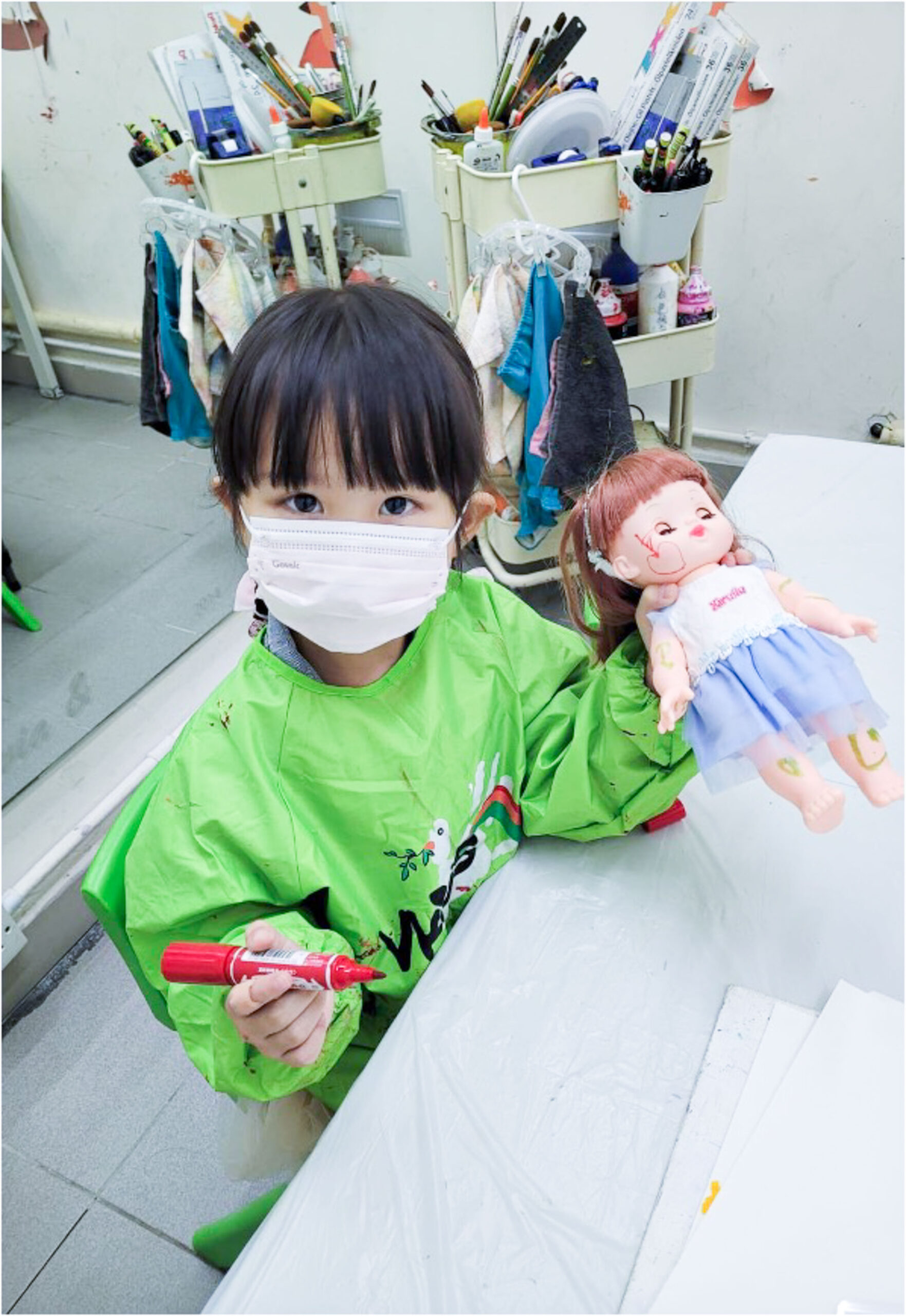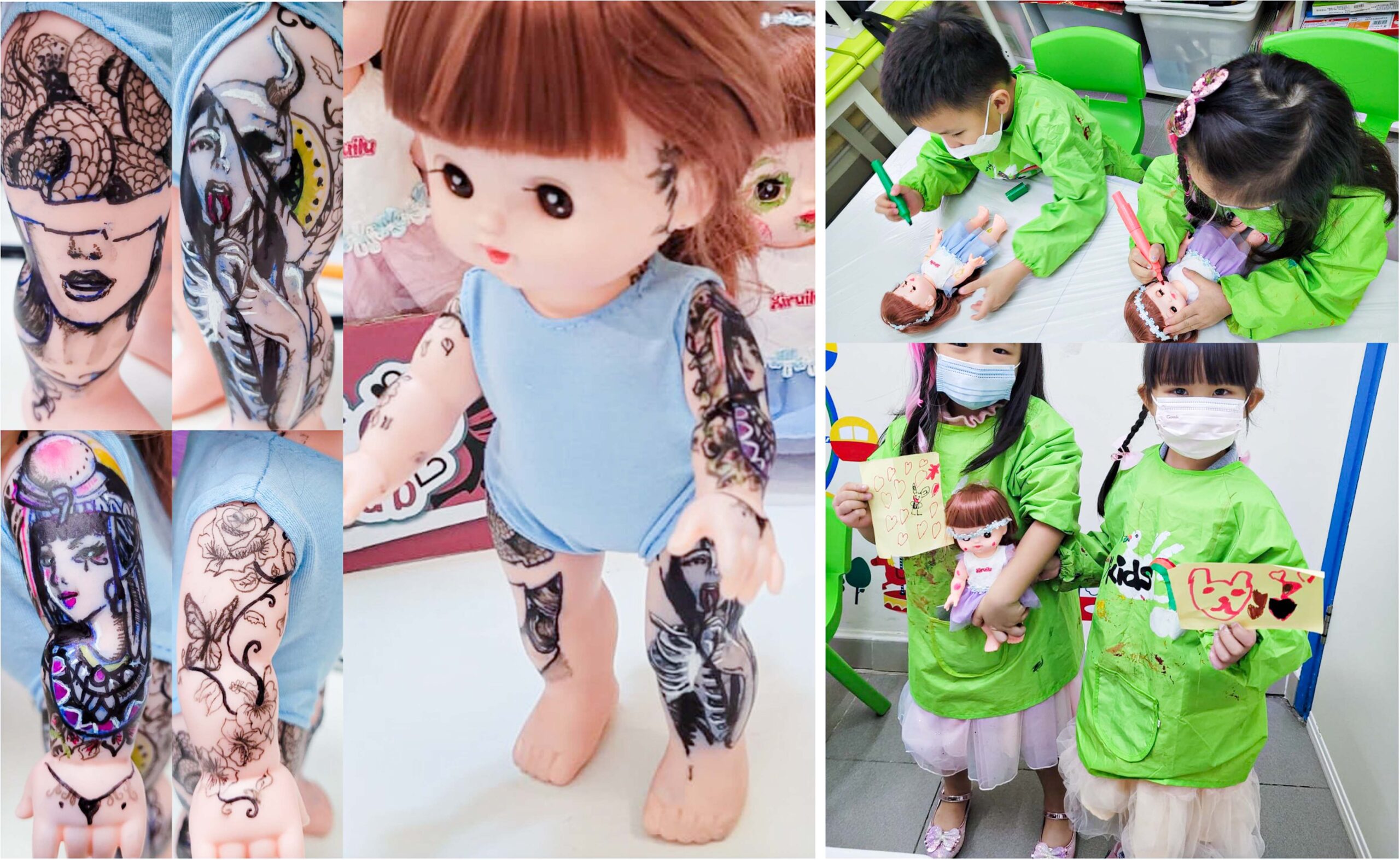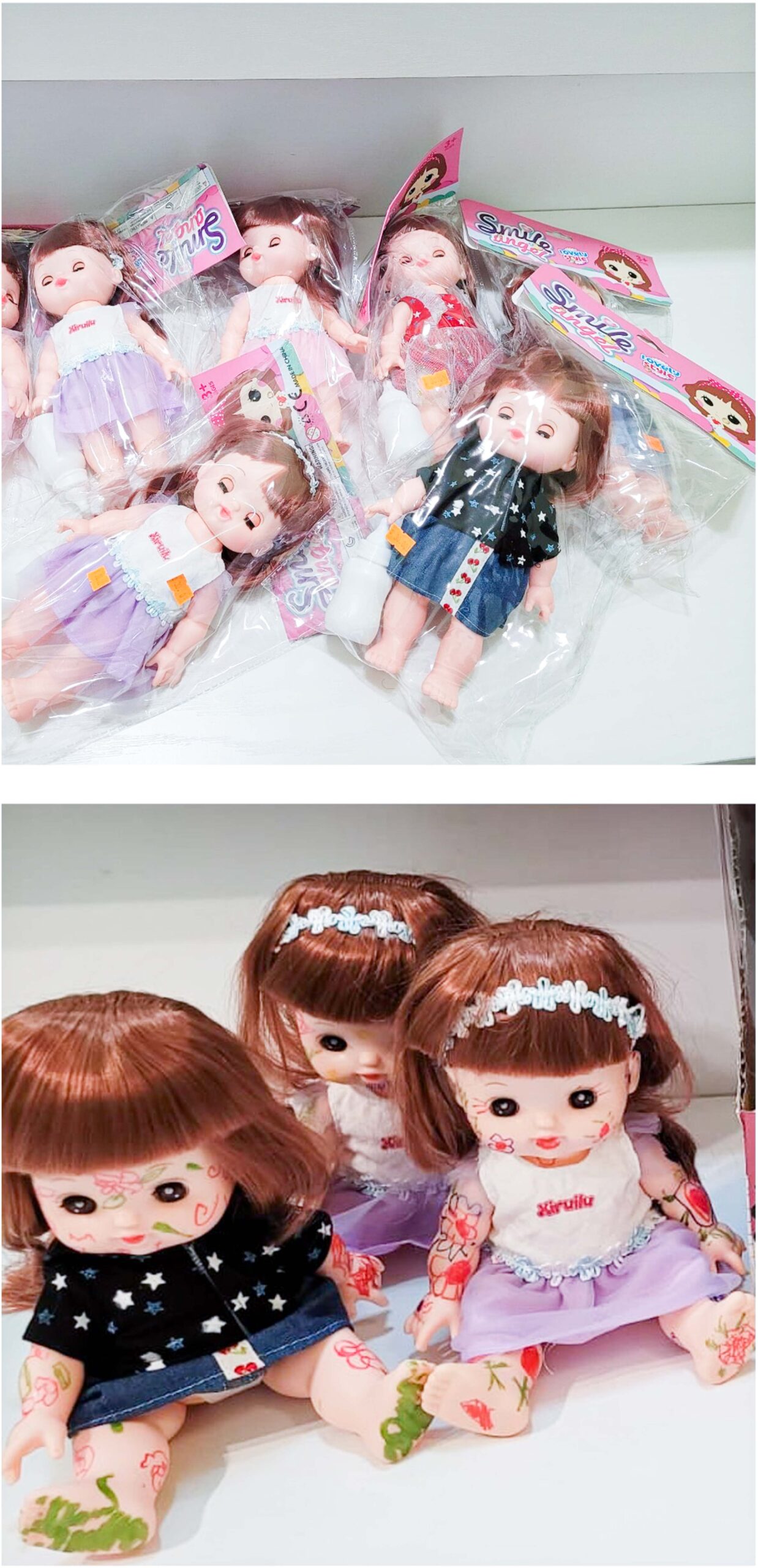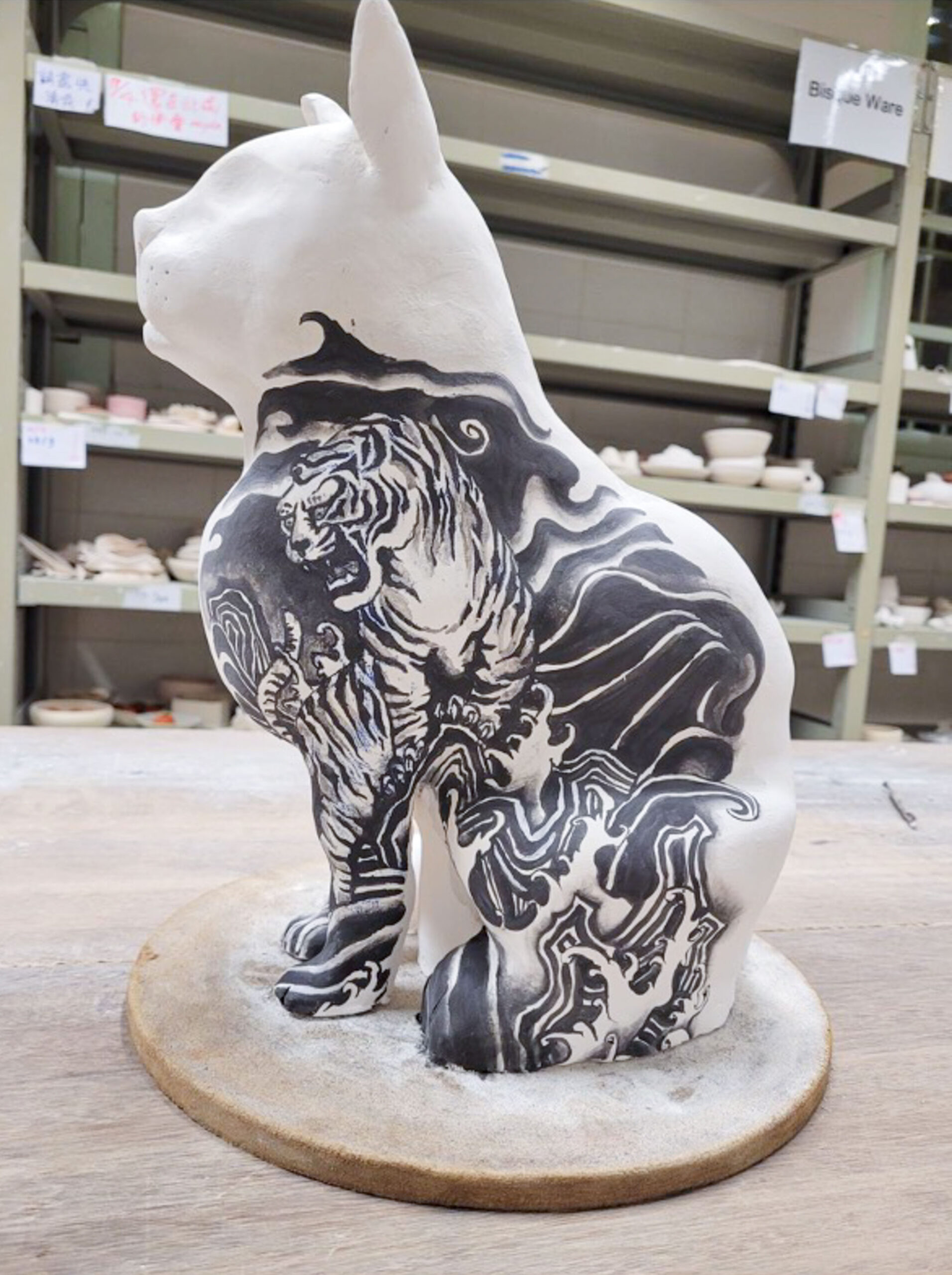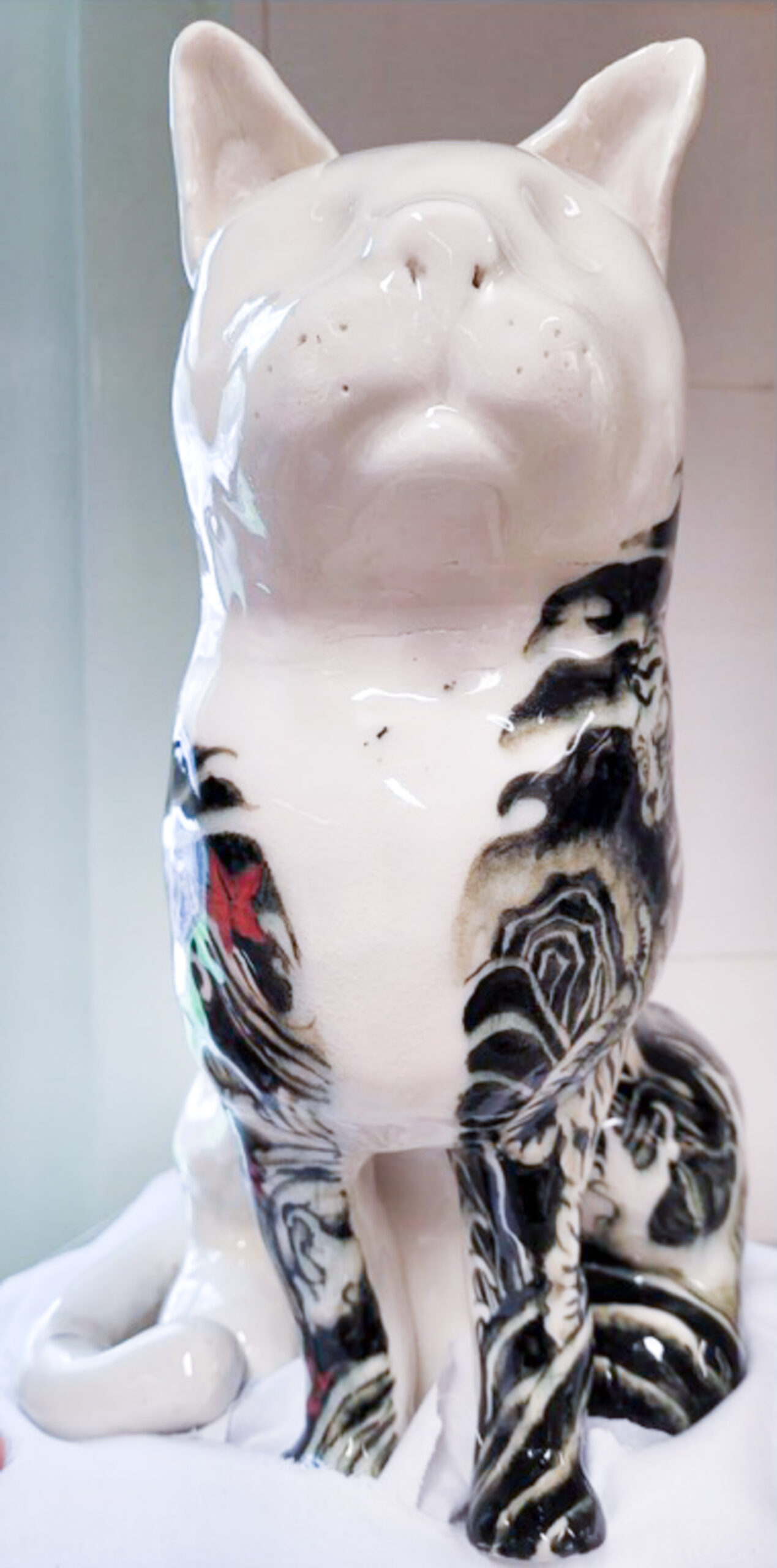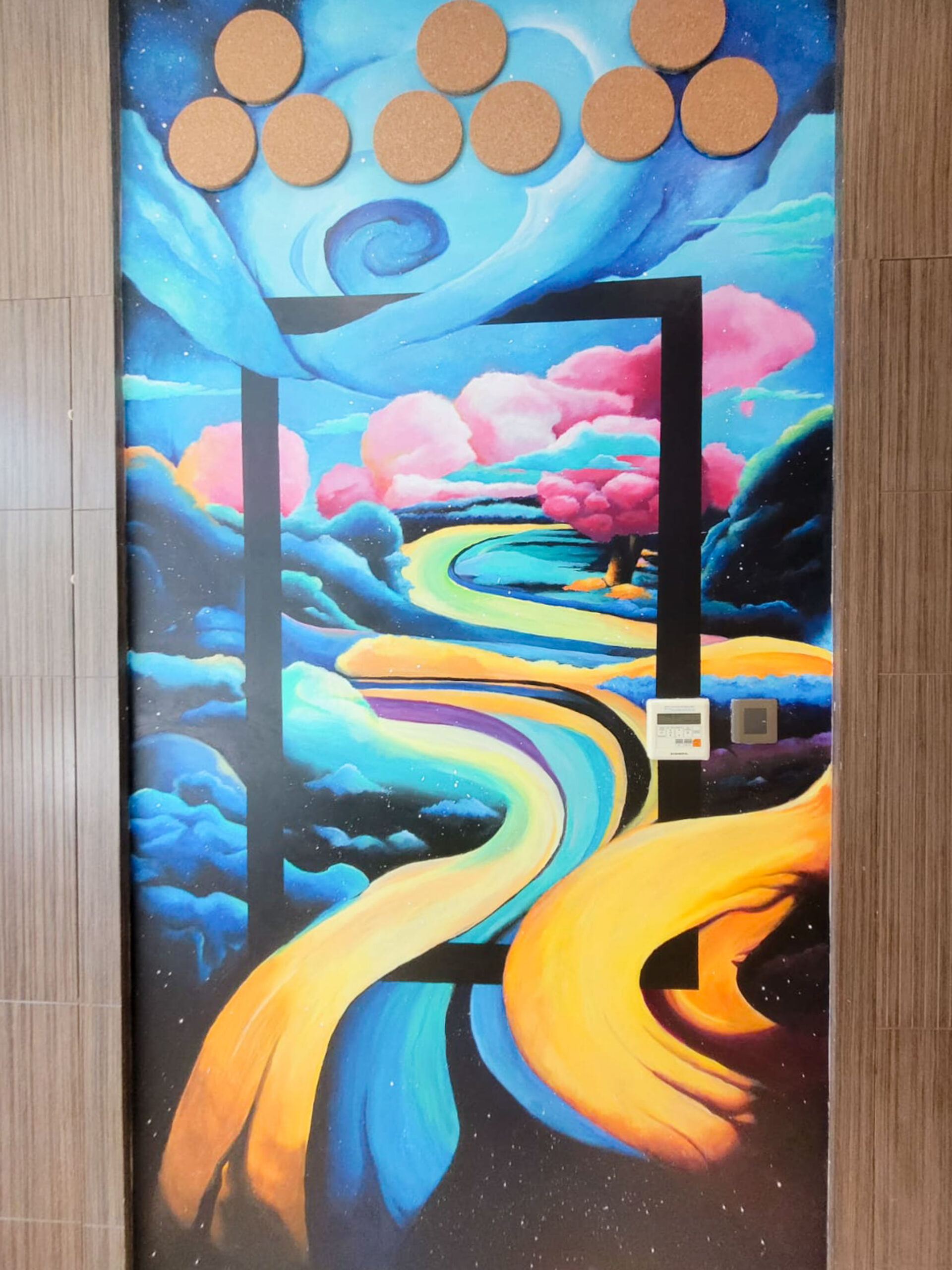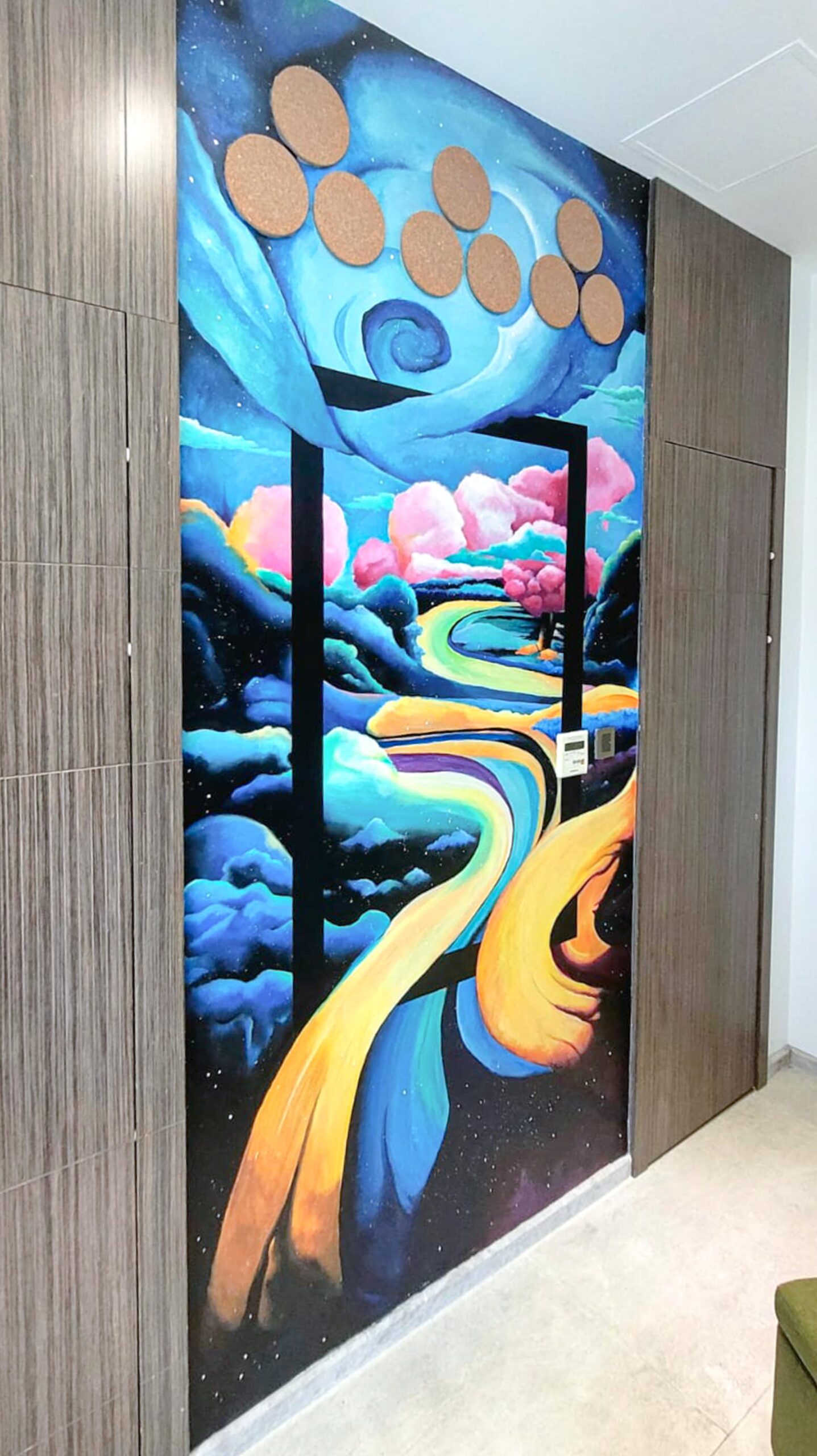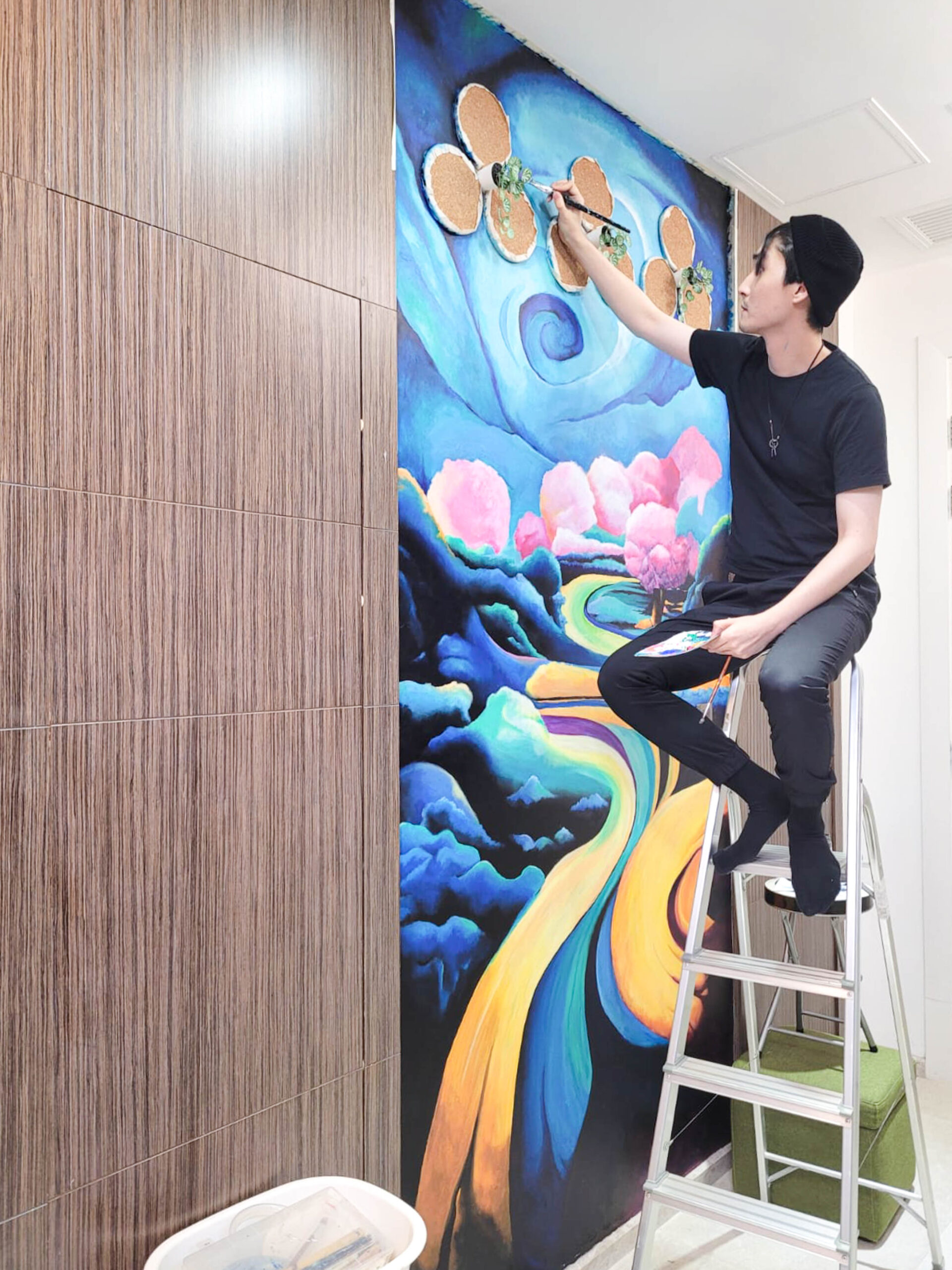


Chung Chun Kau
Artist Chung Chun Kau, a graduate of Hong Kong Baptist University, has shown a strong interest and talent in art from a young age. During his university studies, he focused on graphic design and ceramics, drawing inspiration from both mediums and incorporating them into some of his works.
Chung Chun Kau’s creative inspiration comes from various aspects of life, including work experiences, portraiture, and emotional encounters. For example, after graduating from high school, he worked at a children’s art studio for a period of five years. During this time, he also explored the art of tattoos, including their techniques, cultural significance, and designs. The stark contrast between these two jobs became the inspiration for his artwork, including exploring topics such as “Does having tattoos affect educational work?” and “Do parents mind if teachers have tattoos?” This experience enriched his creative ideas and deeply influenced his artistic style.
Chung Chun Kau’s artwork is a unique interpretation of these issues, reflecting his profound contemplation of “tattoos” and “educating children.” His works not only express his personal emotions but also inspire the audience’s imagination and reflection.
藝術家鍾俊球,畢業於香港浸會大學并展現出對藝術的濃厚興趣和天賦。在大學期間選修的主要科目是平面設計和陶瓷,並受到這兩種媒介的啟發,他部份的作品更會把兩者結合。
鍾俊球的創作靈感來自於生活的方方面面,包括生活中的工作經歷、人物肖像和情感體驗。而作品啟發於在中學畢業後他便在一間兒童畫室裹工作,而且長達5年時間,但期間又在學習紋身,包括它的操作方式,文化和設計。而這兩者工作的強烈的對比成為了他創作的靈感,包括探討”紋身是否會影響教育工作?””家長會介意老師有紋身嗎?”等等的題目,這經驗豐富了他的創作觀念並深深影響了他的風格。

Ceramic
陶瓷
150cm x 180cm x 160cm
150厘米 x 180厘米 x 160厘米
Is the fear of tattoos solely because of their designs? Or is it the symbolic meaning that we as humans attribute to them? This artwork seeks to explore the essence of tattoos and examine whether it is the designs of tattoos or the symbolism behind tattoos that elicit negative reactions. In this artwork, various tattoo designs from criminal organizations around the world are used, such as the “ukiyo-e” style of Japanese gangs, “CHICANO TATTOOS” of Mexican gangs, and the “prison gang style” of Russian gangs. These designs carry strong criminal symbolism. However, these tattoo patterns do not appear on human bodies but are integrated into animals that hold symbolic meanings: pandas and cats. Pandas are associated with the honour of being a “national treasure” and carry “auspicious” meanings in Chinese New Year celebrations and symbols. Additionally, cats have been one of the most popular domestic pets since ancient Egypt, and they symbolize “cuteness” along with their evolution and transformation. But if I were to change the patterns on their bodies to the tattoo designs mentioned earlier, would people still consider them as “national treasures” and “cute”?
紋身之所以可怕是因為它的圖案嗎?還是我們人類給予它背後的象徵意義?這份作品找尋"紋身"的本質,看看到底是「紋身」的圖案還是'紋身'背後的象徵讓人感到反感。這件藝術品中,使用了各個國家的黑幫紋身圖案,例如日本黑幫的「浮世繪」,墨西哥黑幫的「CHICANO TATTOOS」和俄羅斯的「監獄幫派風」,這些圖案都帶有強烈的黑幫象徵。但這些紋身圖案并非出現在人的身上,而是融入在一些具有象徵意義的動物:熊貓和貓。人們為熊貓附上「國寶」的名譽, 熊貓在中國新年和標誌上都有「吉祥」的意思。 另外貓由古埃及時期開始,貓作為世上第二種多的家養寵物,「可愛」的象徵也伴隨着它的進化和演變。 但如果我把它們身上的花紋都改為剛才提到的紋身圖案, 那麼人們還會認為他們是”國寶”和”可愛”的嗎?

2022
Graphic design with mixed media
15 x 5 x 5cm
As mentioned earlier the reason people have a bad impression of tattoos is because it always appears on some people who are associated with criminal organizations or the underworld. But what if the tattoo was on a child’s toy? So, will tattoos be a symbol of “badness”? So, I added tattoo designs suitable for women on the doll, tried to turn this toy into a beautiful work of art, and change the impression that tattoos only appear on gangsters. This Graphic design work is to add tattoo patterns on children’s toys to see how parents will react. It consists of three parts. The first is a personally designed children’s doll. The second part is for the children to put their own designs on the doll. Draw a pattern you like, and the third part is to put the work into a doll packaging that imitates reality and package it as a regular toy to see if parents accept the toys and tattoos created by their children.
2023
Ceramic
15 x 16 x 31cm
The work uses the patterns of “Ukiyo-e” in the tattoo style. The purpose of the work is to study the culture of tattoo patterns. Since the essence of tattoos is to tattoo patterns on the human body from graphic works such as “Ukiyo-e”, what about moving the pattern to other three-dimensional works? Since tattoos do not appear on a person’s body, do people think these are elements of a tattoo?
